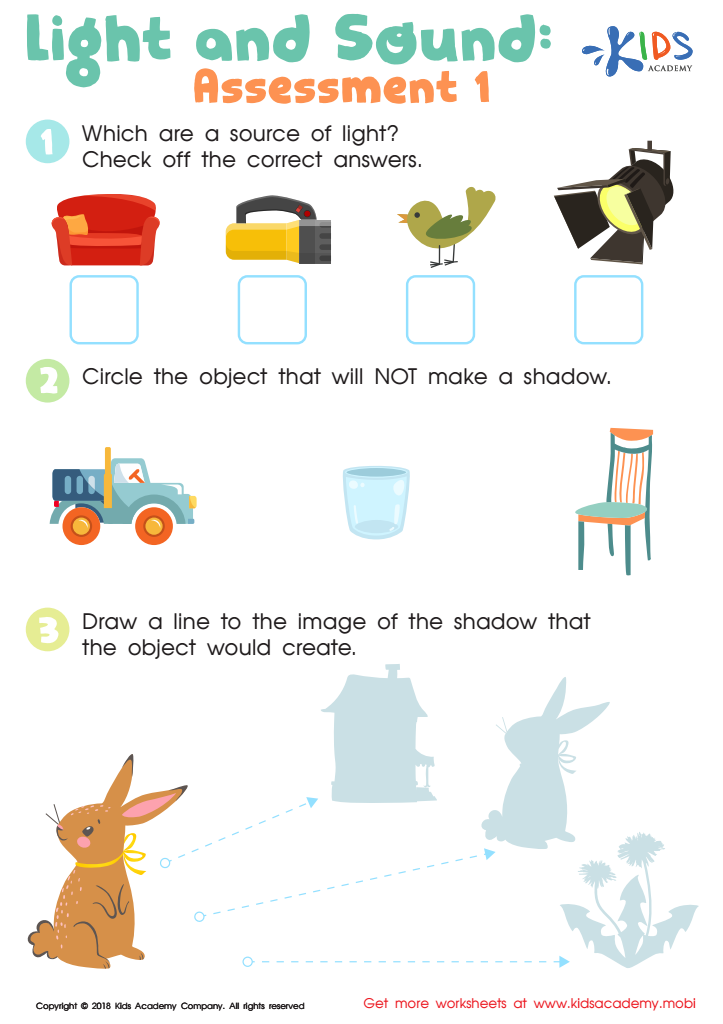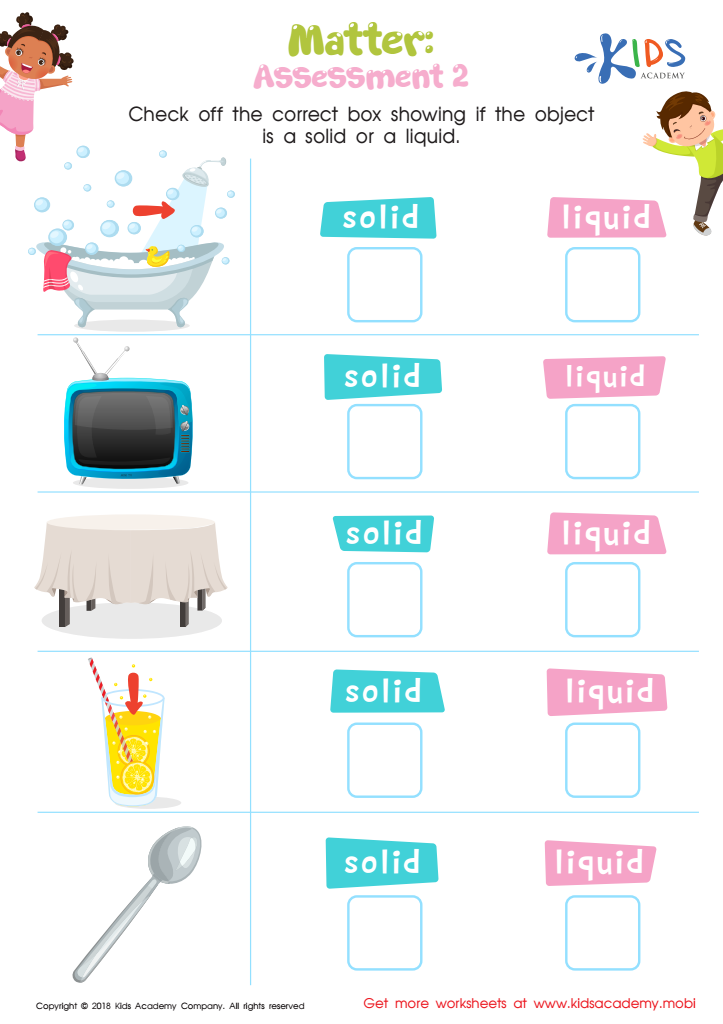Science worksheets activities for 7-Year-Olds
10 filtered results
-
From - To


Matter: Assessment 1 Worksheet


Light and Sound: Assessment 1 Worksheet


Space: Assessment 1 Worksheet


Ecosystems: Assessment 1 Worksheet


Light and Sound: Assessment 2 Worksheet


Animals and Plants: Assessment 2 Worksheet


Matter: Assessment 2 Worksheet


Ecosystems: Assessment 2 Worksheet


Space: Assessment 2 Worksheet


Animals and Plants: Assessment 1 Worksheet
Science worksheets activities play a fundamental role in enriching students' understanding and curiosity about the natural world. By integrating these engaging tools into the learning process, educators can offer a multifaceted approach to science education, fostering not only theoretical knowledge but also practical skills and critical thinking abilities. Here are several reasons why science worksheets activities are incredibly useful in an educational setting.
Firstly, science worksheets activities provide a structured way for students to explore complex scientific concepts at their own pace. They serve as a guide that leads learners through new topics, ensuring that they grasp each step before moving on to the next. This individualized learning experience is crucial in science education, where concepts can often build on one another.
Secondly, these activities encourage active participation. Unlike passive learning methods, working through a worksheet requires the student to engage directly with the material, whether it be through answering questions, solving problems, or conducting simple experiments. This hands-on approach not only aids in memorization but also helps in developing a deeper understanding of the scientific principles at play.
Moreover, science worksheets activities are versatile tools that can cater to various learning styles. They can include diagrams for visual learners, written explanations for those who learn best through reading, and interactive elements for kinesthetic learners. This inclusivity ensures that every student has the opportunity to connect with the material in a way that suits them best.
In addition, these activities can foster critical thinking and problem-solving skills. By presenting learners with real-world scenarios and challenges, worksheets encourage them to apply scientific concepts to find solutions, thereby enhancing their analytical abilities.
Lastly, science worksheets activities make learning fun and engaging. They can include puzzles, games, and experiments that not only educate but also entertain, sparking curiosity and a love for science in students.
In conclusion, science worksheets activities are invaluable resources in the educational landscape. They offer a personalized, interactive, and comprehensive approach to learning that not only imparts knowledge but also cultivates essential skills, making science both accessible and enjoyable for students.

 Assign to My Students
Assign to My Students
















